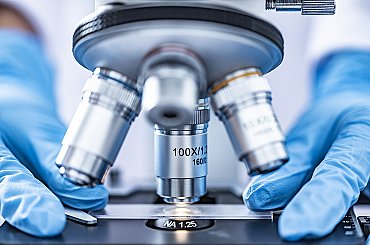Scientists Use Hydrogen Nanoreactors to Engineer Bacteria That Creates H2
Researchers at the University of Oxford have unveiled a significant breakthrough in the ongoing quest for sustainable energy. Utilizing bio-engineered bacteria referred to as “hydrogen nanoreactors,” their team has developed an innovative method to produce green hydrogen from water and sunlight. This novel approach promises not only to lower the environmental impact of hydrogen production but also to make the process more affordable and safe.

You are not logged in
If you want to read more, join the ENERGY-HUB club
LoginTry the monthly membership in the ENERGY-HUB club for free!
Related articles
JinkoSolar’s patent lawsuit against Longi extends to Japan
The patent lawsuit, filed at Japan’s Tokyo District Court, is JinkoSolar’s second case of legal action against Longi this year, fo…
Solar-driven brine management system for hydrogen, chlorine production
Researchers have developed a novel energy system comprising PVT panels, reverse osmosis, reverse electrodialysis, and proton excha…
Will the PEM electrolyzer commercial expansion be limited by the Iridium’s supply?
The green hydrogen, obtained from water electrolysis fed by renewable sources, is expected to be a key factor in decarbonizing the…
Cavendish Hydrogen ASA Adapts to Market Realities While Advancing Hydrogen Technology
Cavendish Hydrogen ASA, a leader in the hydrogen fueling industry, has announced significant shifts in its strategy, including a m…
Milestone: Storag Etzel Begins Operations with 90 Tons of Hydrogen Stored in East Frisia Caverns
Another milestone reached After the successful completion of the conversion and leak tests with hydrogen of two caverns in 2024, S…
ENERGY-HUB is a modern independent platformsharing news and analytic articles from the energy sector on a daily basis. Within our portfolio we monitor czech, slovak and foreign press releases.



